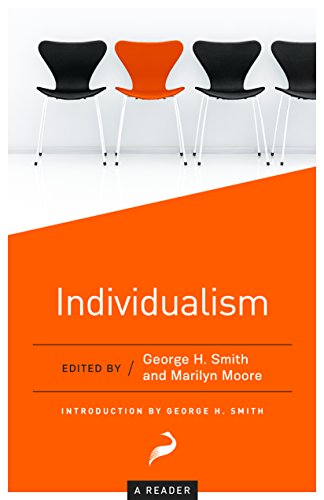Corporate Socialism: Intertwined Economic And Cultural Control By Government And Corporations.
Michael Rectenwald has introduced a new terminology for us to consider as a description, and to some extent an explanation, of the political, economic and cultural situation in which we currently find ourselves: corporate socialism.
As part of his context setting, he tells us that his use of the word socialism embraces only one of two different meanings it may have. One meaning is the utopian idea of income equalization, whereby all citizens receive equal benefits from the state, and “from each according to his ability, to each according to his needs” is the governing mantra. The second meaning, which inevitably accompanies any economic movement towards the first, is top-down, not-to-be-questioned authoritarianism, whereby there are people in authority competent enough and sufficiently empowered to tell you what your needs are and what your abilities are. It’s this kind of top-down authoritarianism Rectenwald has in mind in the coinage “corporate socialism”.
Corporations are not asserting their authority over citizens without government approval or permission or participation. Quite the opposite, the corporations and the government are inextricably intertwined in the use of the political power of command. Here’s how the intertwining operates.
- Governments have decided that they do not want to own the means of production. That strategy turned out disastrously in the Soviet Union. Governments recognize that there has to be a market in what’s produced, reflecting, at least to some degree, what consumers prefer. Otherwise, rebellion.
- However, they have discovered and established their nexus of control in how goods and services are produced. When they impose conditions on commercial operations related to global warming controls, energy use, wage levels, health care benefits, diversity and identity considerations, safety, licenses, labeling and packaging, security, information gathering and sharing, and all their other interventions, governments are determining how firms operate for everything that they produce. The size, shape and function of cars, the organization of telecommunications networks, the operation of search engines, the structure of the health care industry, all these and many other elements of the economy are uniquely determined by legislation, regulation, and government bureaucracy rules.
- The enforcement mechanism is compliance. Firms must assign a significant proportion of their personnel, administrative procedures, technology, reporting and systems to compliance – keeping on the right side of government-imposed rules, which are deliberately complex, opaque and open to confrontational interpretation. Charles G. Koch in his book the Science Of Success reports that Koch Industries felt the need to set up an entire operating unit devote to “the public sector”, i.e. compliance with government rules. Banks like JPMorgan Chase spend billions of dollars on, and allocate thousands of employees to, compliance activities. Absent a major investment in compliance, firms leave themselves open to fines, lawsuits, sanctions, property seizure (e.g. shutdowns) and many more kinds of expensive penalties.
- The consequence is that only the largest corporations are able to operate profitably under the government’s regulation and enforcement regime. Only their scale is enough to amortize compliance costs over a sufficient volume of transactions and a sufficient revenue volume to render it economically tolerable.
- And then government favors the large compliant corporations – those who are doing their bidding – with large government contracts that make them even more co-dependent. As just one example, Google, Microsoft, and Amazon are jointly engaged in a multi-billion dollar Defense Department contract.
Google will build security-and app-management tools for the Pentagon’s Defense Innovation Unit, deepening the Silicon Valley giant’s military ties …. Tools and a console built with the company’s Anthos application management platform will allow DIU to manage apps on either of the cloud services heavily used by the Pentagon: Microsoft Azure, which won the hotly contested JEDI cloud contract, and Amazon Web Services, or AWS, heavily used by DoD researchers, from a Google Cloud console. (www.defenseone.com).
Of course, US Treasury and Federal Reserve operations run through the large banks, the Department of Education determines what technology, services and content are used in public schools, housing regulators determine how builders construct houses, and, to curry government favor, large corporations in these industries comply.
To what extent is this authoritarian socialism?
The goal, says Rectenwald, is “eliminating producers whose products or processes are deemed either unnecessary or inimical to the globalists’ desiderata for “a fairer, greener future.” Naturally, this would involve constraints on production and consumption and likewise an expanded role for governments in order to enforce such constraints”.
The producers who are eliminated are generally small businesses who are less able to afford compliance – and may be less politically inclined to do so. Government requirements, at the state and local level, to comply with COVID regulations have exacerbated the elimination trend. Authorities have, says Rectenewald, “seized the opportunity to cull from the economy the underbrush of small and medium-sized businesses in order to make compliance simpler and more pervasive”.
Who are the perpetrators of this shared compliance scheme?
In a book titled The Managerial Revolution, James Burnham made the case that the socialist revolution of the type that took place in Russia would inevitably be succeeded by a managerial revolution, in which a technocratic elite would take control. As technology and systems become ever more complex, these technocrats believe that production can’t be entrusted to “workers”. Production functions and structures must be shaped and controlled for the “workers’” own good.
Today, the technocrats emerge from our elite government-controlled universities where they are indoctrinated into progressive ideas and, whether they choose employment in industry, government or consultancies and think tanks, they jointly populate a networked system of command and control whereby progressivism can be imposed, embedded and implemented.
Burnham called this arrangement managerialism, a replacement for capitalism. It’s a one-party system of control via a managerial elite. Managerialism is a class structure, with the controlling class embedded in Washington DC in government administration, lobbying, quangos and consultancies, and in large corporations. The managerial elite get to positions of control so that they can fix society, improve us Americans, stave off the global warming we’ve so foolishly triggered, save us from COVID, dictate the conditions in which we work, manage our education and the news and communication we receive.
Politics and economics become directly interfused. The state does not recognize the limits contemplated for it in capitalism, or in the Constitution for that matter. The economic arena is now also the arena of the state. Consequently, there is no sharp separation between political officials and so-called captains of industry. The captain of industry is, by virtue of his function, at the same time, a state official. Managerialism has swept the West not only in business and government, but also in universities, the military, and even churches and synagogues and their leadership.
And this control starts to change the culture. The managerial elite are not content to just control politics and economics, but also take aim at the culture as a whole. It is at the cultural level that the ultimate battle in society between the elite and the normal people takes place. The normal people start to see every aspect of their lives infringed upon by the managerial elite. Managerialism has already totally changed the American culture. It’s changed the composition of American culture through a wide increase in immigration since 1962, and it’s also changing our mores. There’s been a huge transformation, for example, in the embrace of all sorts of sexual lifestyles that used to be anathema to the religious conception of the founders of this country, creating new legitimatized identities and protected classes of people. These and other elements of cultural transformation are the results of the managerial class controlling society.
According to Burnham, this is totalitarian, a managerial state. Democracy is a show for the normal people to let off political steam from time to time, but it does not affect the elite’s one-party system or undermine their command and control platform.
So this is our new political, economic, and cultural situation. Call it corporate socialism, or call it managerialism. Either way, it’s tending towards totalitarianism.






